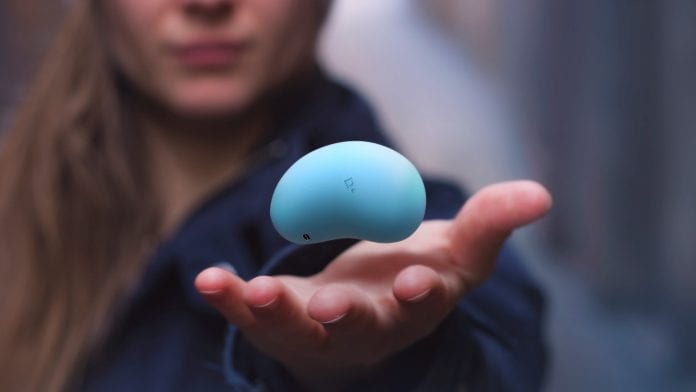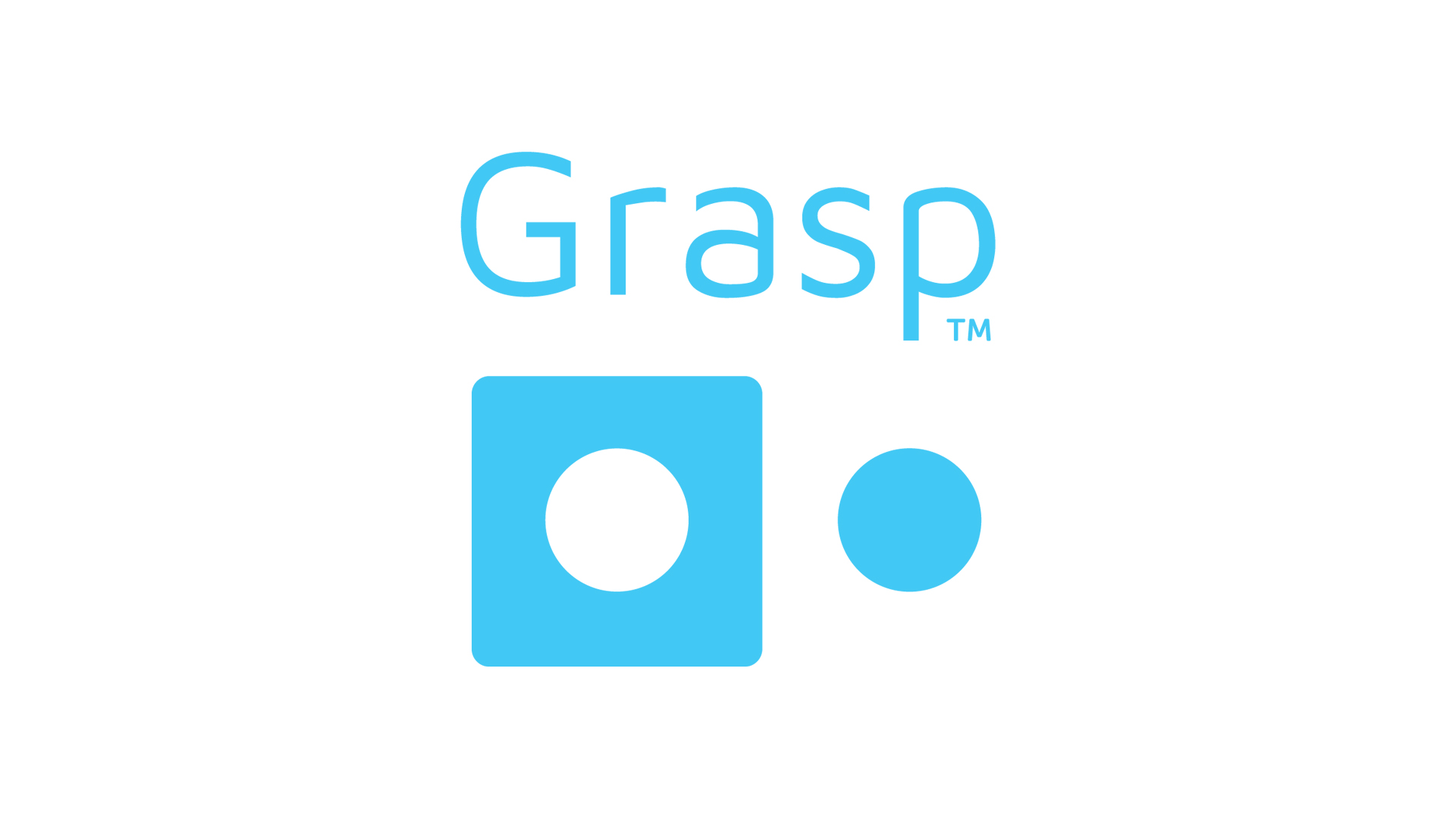
Grasp’s innovative mental health self-management device helps patients understand their symptoms and could provide a sustainable solution to overwhelmed healthcare providers.
Grasp AS is a privately owned, digital medtech company focusing on the development, production and distribution of innovative digital healthcare devices. Our mission is to provide the healthcare market with reliable digital solutions, enhanced accuracy and effective medical treatments that can support and enhance patients’ experiences. Grasp’s revolutionary device registers the user’s emotional experiences at certain periods of time. By squeezing the Grasp device the user can easily store the time of an event, its intensity, and the duration. The portable device replaces complicated apps, notebooks and other tools intended for the self-reporting of key events. Grasp’s overall aim is to help people globally to communicate and understand their emotions in a way that has not been done before. Grasp is a diary without words. This is communication and mental health management re-imagined.
Why digital healthcare solutions are needed
Around 30% of adults aged between 18 and 96 are experiencing long-term pain; and pain-related issues account for a large part of general practitioners’ daily consultations. Today, it is common to use questionnaires to map the patients’ pain issues. However, mapping moments of – for instance – pain and anxiety is difficult to capture using today’s methods. Cumbersome mapping tools can lead to poor patient compliance and limited use. The mapping of pain is also particularly difficult when supporting children and the elderly, due to the language and skills needed to use the majority of analysis tools effectively.
In addition to the issue of pain, mental health problems are perhaps the greatest healthcare challenge of our time. Mental health treatments cost the UK more than £94bn every year, including prescriptions, social support costs and economic losses from reduced levels of productivity. It is estimated that around one in eight children and young adults aged five to 19 have at least one mental health problem. These health problems often begin in a person’s teenage years and can last decades, affecting people across the whole spectrum of society. On a global level, one in four people will be affected by mental or neurological disorders at some point in their lives and it is estimated that around 450 million people are currently suffering from a mental illness. It is no surprise, therefore, that mental health problems are among the leading causes of ill health and disability worldwide. The COVID-19 pandemic is likely to lead to an increase in mental health problems, both as a direct result of the disease and limited access to mental health services.
The need for new mental health management solutions
This area of healthcare has been neglected for a long period of time, meaning that progress towards prescribing the best treatments and finding innovative solutions to support patients has been slow. There are very few devices available at present to support those who experience mental health issues. By 2023/2024 the NHS plans to dedicate £2.3bn per year to delivering high-quality, evidence-based, mental health management services to a further two million people. To meet this target, mental health services need 27,460 new posts, in addition to the 21,000 posts specified in the current mental health workforce plan for England. The question for now is: how can service providers deliver vital care with ever-growing waiting lists and staff shortages? The current scale of staff vacancies delays the completion of risk assessments for those already under the care, and, where there are national access standards and targets, or national service specifications, such as child and adolescent mental health services (CAMHS) teams, high levels of demand coupled with staff shortages will lead to long waiting times, restriction of access and potentially intervention by the UK Care Quality Commission (CQC).
Staff shortages are common across mental health trusts and, although managers continue to fill vacancies with bank and agency staff, there are increasing examples of services being unable to meet the rising demand for care. Additionally, the constant need to locate staff detracts from clinical care, forces current staff to work longer hours, take on additional work and miss vital training sessions. This in turn has an impact on staff morale, patient safety, sickness levels, and staff turnover.
There are three ways to scale up effectively and meet the increasing demand: capital, people, and technology. Our innovation provides a technological solution to this scaling problem.
A closer look at the Grasp device
The Grasp device enables the user to log their emotional experiences and record sensations including pain, stress, fear, anxiety, sorrow, shortness of breath, pain, dizziness, hunger, withdrawal, but also happiness and motivation. Using Grasp is easy – just ‘squeeze’ your experiences. Grasp remembers the time, duration and intensity of the squeeze. The device displays an experience log, providing the user with an insight into the overall status of their mental and emotional status, and provides instant support as and when it is needed.
Our vision is to replicate in the mental health space self-management practices which are already widespread in the physical health space, including remote patient monitoring and enabled data-driven decisions. Providing patients with wearable monitoring devices for their physical vital signs, under the supervision of a remote multidisciplinary team, is becoming standard practice. The main drivers are the desire to cut down the number of hospital admissions, re-admissions, community care, GP visits, prescription costs and missed appointment rates.
The service that Grasp provides consists of a silicon stone analytical device with a unique user interface and advanced supporting software. Users can take the device with them wherever they go and squeeze Grasp as a response to their experiences. Every squeeze will be logged, and when the user is ready they can upload their data to the supporting analytic platform and all their ‘squeezes’ will be ready to view. This provides the user with a unique insight and understanding into their own mental health, and enables them to look for special occurrences and tendencies.
Our non-verbal, real-time, remote mental health management and monitoring platform allows service providers to rapidly scale up to meet increased demand, maintaining service delivery and continuity during and after the current COVID-19 pandemic. Patients can see their own data with trends over time and begin to self-manage. When equipped with the appropriate access authorisation, their carer can also view the data to enable them to provide targeted support to the patient and to understand when and to whom they might need to escalate in the case of a deterioration. The remote monitoring team can see individual patient data on their patient dashboard.
Innovative technology solutions like Grasp can deliver tangible improvements to important social outcomes, including the healthy extension of working lives, increased job retention and return to work, plus improved daily functioning – all before individuals are adversely affected by the long-term consequences of mental illness. This innovative technology could save lives, time, and money.
Medical approval and production:
- CE and medically approved, Class 1;
- Production line established and ready for scale-up;
- Software platform ready for pilot testing and clinical trials;
- 500 Grasp devices produced by August 2020; and
- One pilot project finished (proof of concept).
Delivering long-term solutions
A recent BMA survey of over 1,000 mental health care professionals identified the significant impact of a shortage of mental health staff in the face of rising demand. This disparity between demand and available resources has left staff at ‘breaking point’ and patients failing to get the care they need, where they need it and when they need it.
Deploying a non-verbal, real-time, remote mental health vital signs monitoring platform such as Grasp will be a step change in mental health delivery. Grasp is easy to understand and use both for the patient and the remote clinical team. Onboarding is straightforward with easy integration into current working patterns, IT infrastructure and digital patient records.
It will ensure a scalable transition beyond just ‘parity of esteem’ for physical and mental health to a point where mental health resources can be more highly focused so that the vulnerable patients who depend on these services can expect the same level of care, and the same level of outcomes as they do now in physical healthcare. And this can all be done within current staffing and budgetary constraints.
Early deployment of the Grasp platform will lead to a rapid recovery from depression or anxiety disorders. If Grasp were made more widely available, it would cost the NHS little or nothing because of the savings which could be realised from a reduction in welfare benefits, treatment, consultations, prescriptions, incapacity benefits and lost taxes.
A recent government report indicated the following potential cost saving benefits of early intervention:
- Conduct disorder estimated at £9,288 per child;
- First episode psychosis estimated at net NHS savings of £330m (£1.7bn wider costs);
- Alcohol abuse: £40m in the NHS, £40m in the justice system and £220m productivity gain;
- Suicide prevention: £500m per year;
- Housing support: £20,000 per patient per year;
- Hospital bed days: £224m; and
- Perinatal depression £500m (£74,000 per case).
These improvements are driven by the near-real-time ‘gold dust’ data which the Grasp platform can generate. Policymakers and commissioners can see the data at a population level and begin to understand the effect of policy changes, new pathways, novel interventions, service delivery key performance indicators (KPIs) etc. And all this can be done in near-real time, with high levels of granularity providing an early warning system and all the information needed to make speedy, data-driven decisions.
This article is from issue 17 of Health Europa. Click here to get your free subscription today.










